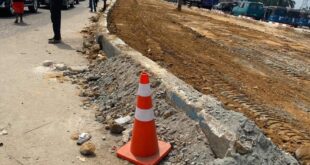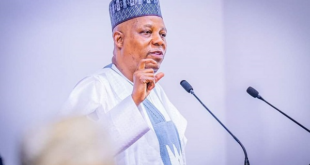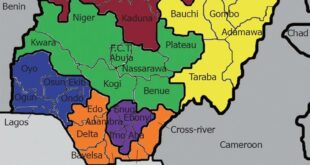By Vivian Emoni
The President of Nigeria Mining and Geosciences Society (NMGS), Prof. Akinade Olatunji, has condemned the high rate of indiscriminate drilling of boreholes and urged people to always engage professionals to handle them.
Olatunji said this in an interview with the News Agency of Nigeria (NAN) on Sunday in Abuja.
He said that Nigeria was very lucky to have a geological land that seems to be stable and helps to avert natural disasters from happening in the country.
According to him, “we don’t experience natural disasters such as earthquakes and a host of others, like other countries. Also the rainfall pattern in Nigeria is not bad.
“We should, therefore, be grateful to God. The disasters that happen here have nothing to do with borehole drilling.
“When a particular group of people indiscriminately drill boreholes, it can cause waste huge environmental challenges.
“That Nigeria is blessed should not make us take things for granted. We should be conscious of the way we use our natural resources so that it will not destroy our environment.
“There is also the need to employ professionals and stop engaging quacks who don’t know the rain pattern of a particular place they intend to drill boreholes. When there’s no regulations or policies guiding boreholes, people will drill indiscriminately,” he said.
Olatunji said that there was the need to adhere to principles and regulations guiding the water sector, adding that this would encourage people to provide good water control centre system.
He warned that one borehole can be sufficient for a community to use.
The NMGS boss called on the National Assembly to promulgate the water Bill into law.
He said that water was critical to the well-being of Nigerians, adding that it would be necessary to adopt wholesome measures to guarantee access to potable, safe and clean water across the country.
According to him, Nigeria deserves a water law that will devolve power to the constituent entities, not a
law that will concentrate power in a federal bureaucracy.
“The essence of having this law is to have a coherent policy that will govern activities in that sector,” he said.
Olatunji said that a well-defined water policy would boost agriculture, food security, industrialisation, and access to clean water for domestic use and for sanitation.
He also said that environmental issues were critical and should be taken seriously because the environment bears the burden of other sectors such as water, agriculture, mines and steel, among others.
He said that issues of climate change, biodiversity and other environmental problems were as well affecting these sectors and should be addressed.
He urged all the relevant stakeholders to collaborate with government of all levels for strong implementation of policies and programmes in the sectors.
(NAN)
Subscribe to the Advocate News letter and receive news updates daily in your inbox.
 Advocate.ng Latest news update on politics, entertainment, sport and more
Advocate.ng Latest news update on politics, entertainment, sport and more




